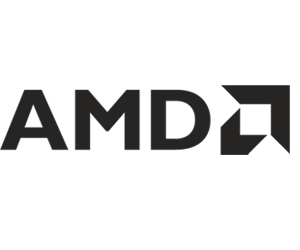The advanced research many healthcare organizations conduct often requires an immense amount of computing power, leading processor manufacturers such as AMD to create the powerful chips needed for this research.
HealthTech spoke with Alan Lee, AMD corporate vice president and head of research and advanced development, about the company’s high-end computing systems, the future of healthcare and why it provided access to Penguin Computing on Demand (POD) cloud-based clusters to institutions and research facilities conducting COVID-19 research.
HEALTHTECH: What role has AMD played in deploying high-performance computing to battle the COVID-19 pandemic?
In April of last year, when the scale and scope of the pandemic was still in its early days, our CEO, Lisa Su, made a $15 million commitment of high-performance computing (HPC) systems — the HPC Fund — to accelerate research on the novel coronavirus and associated science for potential solutions to the pandemic. AMD provided a combination of about 8 petaflops — a petaflop is a computer’s ability to conduct one quadrillion floating point operations per second — of on-premises processing power and access to approximately 4 petaflops of dedicated cloud-based computing, both optimized for large-scale deep learning, to more than 20 university and research organizations through our HPC Fund.
These donations were in addition to the 1,000 AMD Radeon Instinct GPU accelerators that went to upgrade the Lawrence Livermore National Laboratory’s Corona system. LLNL researchers used the upgraded system to power a new virtual screening platform, combining experimental data with machine learning to reduce the time needed for their antibody and anti-viral trials. The HPC Fund also distributed more than 250 AMD EPYC and AMD Radeon Instinct accelerated server solutions to research institutions to aid a variety of pandemic-related workloads, including genomics, vaccine development, transmission science and modeling.
DISCOVER: Explore how AMD's server solutions are powering healthcare.
HEALTHTECH: Why do developers of medical devices need powerful processors and a clear roadmap?
In the medical field, processing and visualization power is critical throughout the spectrum of potential systems, including supercomputers, “big compute” deployments, data centers, edge servers, workstations and embedded devices. Depending on the application, different types of computation and visualization capabilities are required. To name just one example, high-fidelity displays are a critical component of some device solutions so that healthcare providers can visualize and evaluate complex images.
Because regulatory approvals and certification take a long time in this industry, we need to provide a technological roadmap — not to mention the fact that the useful life for embedded devices can extend more than a decade. So, the need to service them for a long time plays a central role.
HEALTHTECH: How does AMD see the demand for high-end medical imaging and drug discovery changing in the next decade?
The demand outstrips capabilities in certain areas, but this is rapidly changing, and artificial intelligence and machine learning have both been instrumental in pushing the boundaries of drug discovery in terms of both ability and speed. The exciting new frontier is combining the best aspects of traditional scientific computing algorithms with those from the AI realm to enable speed, power and cost efficiencies. This can bring fundamental tools of medical research into the hands of a much larger group and, simultaneously, push the boundaries of imaging and pharmaceutical science well beyond where they are today.
The exciting new frontier is combining the best aspects of traditional scientific computing algorithms with those from the AI realm to enable speed, power and cost efficiencies.”
Alan Lee
Corporate Vice President and Head of Research and Advanced Development, AMD
HEALTHTECH: What role will ultra-high-performance data processing and technologies such as scalable AI play in the future of healthcare?
Structured and unstructured data are both increasing exponentially. To make sense and use of this data, more and more medical solutions and devices are incorporating AI and computing at all levels of the hierarchy.
For example, a test for a pathogen deployed at a rural health clinic may have the internal intelligence to provide a result for a patient almost instantly. However, the clinic and larger health systems may also need access to this data to combine with their own in order to understand spread characteristics and communicate the latest in diagnostic advice to the practitioner. In turn, this data may also need to be further anonymized and combined securely and privately with data of multiple types from sources across the country, or even the world, for analysis and development of better drugs and treatment plans. At each stage, the data may need to be parsed, manipulated, combined with other data and analyzed through multiple systems with their own requirements and objectives.
At each level of these types of processes, compute demands are rising, and different kinds of processing and AI may be needed to ensure that we increase processing efficiency. Therefore, we think a major trend is to service these requirements by providing diverse and scalable compute solutions.
Brought to you by:


Дмитрий Ларичев/Getty Images












